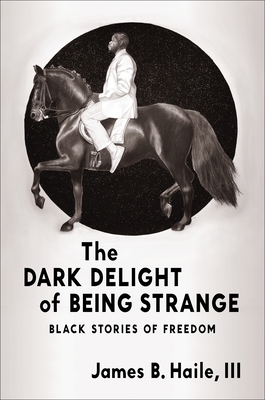
description
ration of Black speculative imagination, The Dark Delight of Being Strange combines fiction, historical accounts, and philosophical prose to unveil the extraordinary and the surreal in everyday Black life. In a series of stories and essays, James B. Haile, III, traces how Black speculative fiction responds to enslavement, racism, colonialism, and capitalism and how it reveals a life beyond social and political alienation. He reenvisions Black technologies of freedom through Henry Box Brown's famed escape from slavery in a wooden crate, fashions an anticolonial "hollow earth theory" from the works of H. G. Wells and Jules Verne, and considers the octopus and its ability to camouflage itself as a model for Black survival strategies, among others. Looking at Black life through the lens of speculative fiction, this book transports readers to alternative worlds and spaces while remaining squarely rooted in present-day struggles. In so doing, it rethinks historical and contemporary Black experiences as well as figures such as Harriet Tubman, Frederick Douglass, Booker T. Washington, W. E. B. Du Bois, Henry Dumas, and Toni Morrison. Offering new ways to grasp the meanings and implications of Black freedom, The Dark Delight of Being Strange invites us to reimagine history and memory, time and space, our identities and ourselves.
member goods
No member items were found under this heading.
Return Policy
All sales are final
Shipping
No special shipping considerations available.
Shipping fees determined at checkout.







